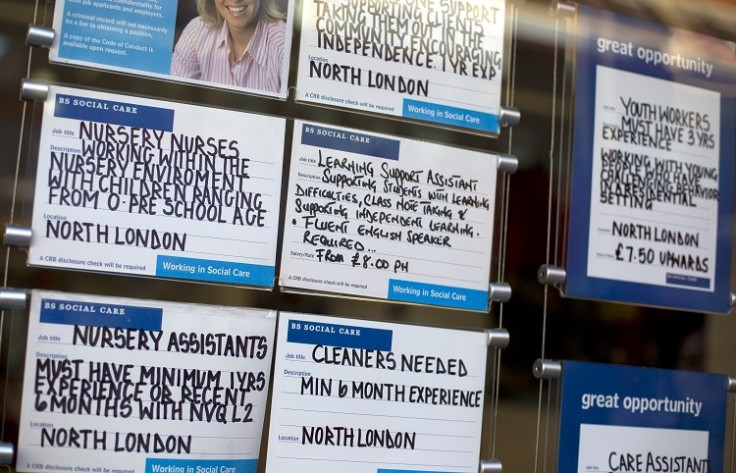Britain's Zero-Hours Contracts: Temporary Jobs Behind Half of Employment Rise

Temporary jobs have accounted for almost half of the rise in employment since 2010 as the UK labour market transforms into a mire of underemployment.
Analysis of official labour figures by the Trades Union Congress (TUC) shows that 46% of the total rise in employment - or 86,000 workers - is from temporary jobs.
Furthermore, the number of involuntary temporary workers - those who want a permanent job - has shot up by 155% since 2005 to 655,000.
The government has repeatedly pointed to a robust-looking labour market as evidence that the economy is healing, but below the headline rise in employment the picture is one of zero-hours contracts, temporary work and a painful decline in incomes.
"Millions of people have taken shorter hours, temp jobs and zero hours contracts in order to stay afloat during the recession and stagnation," said TUC General Secretary Frances O'Grady.
"But while poor pay and no career prospects may be better than the dole, these kind of jobs will not raise living standards or create a meaningful recovery for most people.
"The fact that casualised labour continues to grow even during this 'so-called' recovery suggests that the labour market is far more fragile than headline figures suggest."
She added: "Ministers need to acknowledge the problems of under-employment and insecure work, as it is eroding people's living standards. Cutting basic rights at work and making it easier for bad bosses to mistreat staff will only make things worse."
The Chartered Institute of Personnel and Development (CIPD) estimates that there are a million workers in Britain on controversial zero-hours contracts, which give no guarantee of working hours each week and can leave staff in financial uncertainty.
Unless offered specifically, they are also not afforded the same rights as permanent employees, such as paid sick leave or holiday.
An IBTimes UK report revealed there are thousands of workers at local councils across Britain on zero-hours or casual contracts.
Business Secretary Vince Cable is overseeing a review into the use of zero-hours contracts in the UK, to see how government can crack down on their exploitation. However, Whitehall will not seek a total ban on the controversial contract.
Critics claim that some companies use zero-hours contracts to dodge delivering staff employment benefits that they would be obligated to give someone under a permanent contract.
However, many argue that they are an important part of the labour market that offer flexible working arrangements for those who need them, such as parents with child care responsibilities or the disabled.
© Copyright IBTimes 2025. All rights reserved.






















